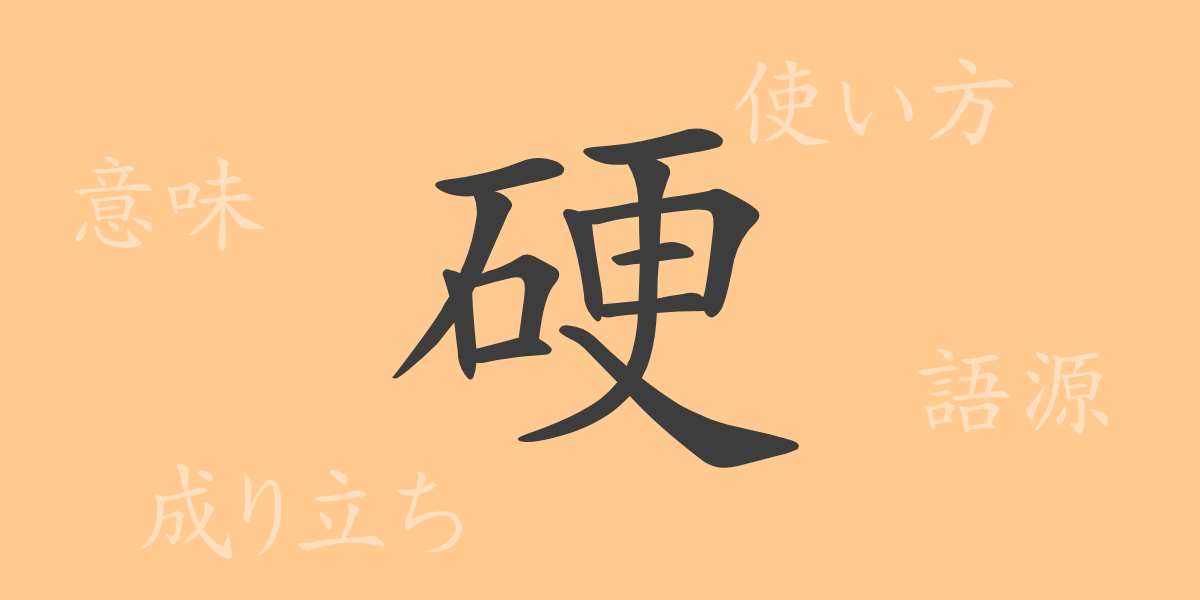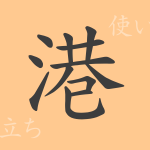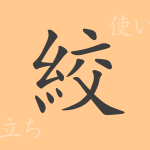The beauty of the Japanese language is reflected in its complex and profound characters. One of the commonly used kanji, “硬(こう),” is frequently encountered in daily life, but it carries a rich history and meaning. In this article, we will delve into the origins, meanings, usage, and the role of “硬(こう)” in the Japanese language.
Origin of 硬(こう) (Etymology)
The kanji “硬(こう)” is composed of “石(いし)” (stone) and “更(こう)” (more solid state). This combination creates the character “硬(こう),” which expresses hardness or firmness. This kanji, created in ancient China, was later introduced to Japan, where it has been used in the unique cultural context of Japan.
Meanings and Usage of 硬(こう)
The character “硬(こう)” means “hard,” “firm,” or “solid.” It can refer to physical hardness and be used metaphorically to describe mental strength, as in “意志が硬い(いしがかたい)” (strong-willed). In Japanese, it appears in various words, including the adjective “硬い(かたい)” and the verb “硬化(こうか)” (to harden).
Readings, Stroke Count, and Radical of 硬(こう)
To fully understand the kanji “硬(こう),” it’s important to know its readings and structure.
- Readings: The on-yomi (Chinese reading) is “コウ(こう),” and the kun-yomi (Japanese reading) is “かたい(かたい).”
- Stroke count: “硬(こう)” has a total of 12 strokes.
- Radical: The radical is “石(いし),” which categorizes it among kanji related to stone.
Idioms, Phrases, and Proverbs Using 硬(こう)
There are many idioms, phrases, and proverbs in Japanese that include “硬(こう).” These expressions use the properties of hardness to describe characteristics of people or situations.
For example, “硬直化(こうちょくか)” means “rigidity” or “loss of flexibility,” “硬派(こうは)” refers to someone with firm principles who does not compromise, and “硬軟両様(こうなんりょうよう)” means to employ both hard and soft approaches.
Conclusion on 硬(こう)
The Japanese kanji “硬(こう)” demonstrates the rich expressive power of the language through its form, meaning, and usage. Spanning from physical hardness to mental strength, this kanji is essential for understanding the depth of Japanese. We hope this article has conveyed the multifaceted nature and appeal of “硬(こう).”

























